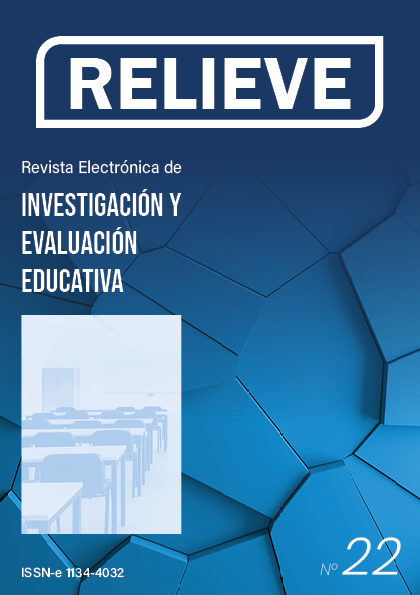PISA Science Contextualized Items: The Link between the Cognitive Demands and Context Characteristics of the Items
DOI:
https://doi.org/10.7203/relieve.22.1.8280Keywords:
PISA, science items, context characteristics of the items, cognitive demands, validity.Abstract
The ubiquitous use of contexts in test items is based on the premise that contextualizing items is an effective strategy to test whether students can apply or transfer their knowledge. In this paper, we continue a research agenda focusing on testing this premise. We present a study of the context characteristics in a sample of 2006 and 2009 PISA science items and how these characteristics as well as student performance may be related to the cognitive demands of the items. The study was guided by two research questions: (1) What are the cognitive demands of the sampled PISA contextualized items and what is the students’ performance linked to these items? (2) Are the items’ cognitive demands associated with certain characteristics of the contexts of the items that proved to be linked to students’ performance? Using 52 released and secured PISA science items, we captured information about three context dimensions of items, level of abstraction, resources, and nature of the context, and the cognitive demands of the items. A multinomial logistic regression with cognitive demand as the outcome variable, context characteristics as the predictors, and percent of correct responses as the covariant indicated that certain context characteristics are linked to the cognitive demands of items. For example, we found that items in which contexts involve only concrete ideas were associated with items with low cognitive demands; these items are unlikely to require content knowledge to be responded. We also found that the type of resource (e.g., tables, graphs) was associated with the cognitive demands of the items: schematic representations seem to be linked to items tapping procedural knowledge rather than to items tapping declarative or schematic knowledge. We concluded that further research is needed to better understand the influence that context characteristics have on the cognitive processes in which students are asked to engage and in their performance.
Key-words: PISA, science items, context characteristics of the Items, cognitive demands, validity.
Downloads
Downloads
Published
How to Cite
Issue
Section
License
The authors grant non-exclusive rights of exploitation of works published to RELIEVE and consent to be distributed under the Creative Commons Attribution-Noncommercial Use 4.0 International License (CC-BY-NC 4.0), which allows third parties to use the published material whenever the authorship of the work and the source of publication is mentioned, and it is used for non-commercial purposes.
The authors can reach other additional and independent contractual agreements, for the non-exclusive distribution of the version of the work published in this journal (for example, by including it in an institutional repository or publishing it in a book), as long as it is clearly stated that the Original source of publication is this magazine.
Authors are encouraged to disseminate their work after it has been published, through the internet (for example, in institutional archives online or on its website) which can generate interesting exchanges and increase work appointments.
The fact of sending your paper to RELIEVE implies that you accept these conditions.














